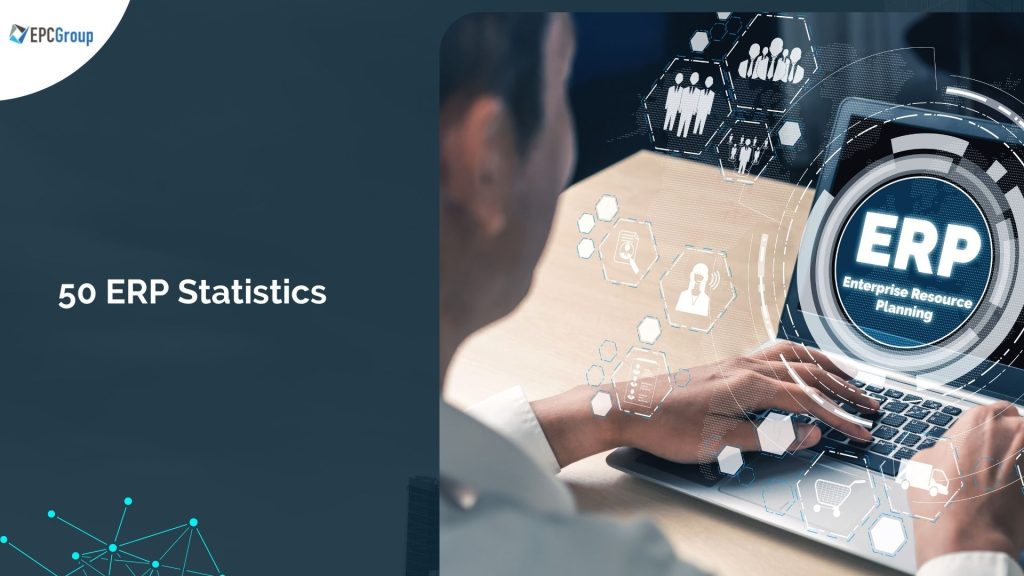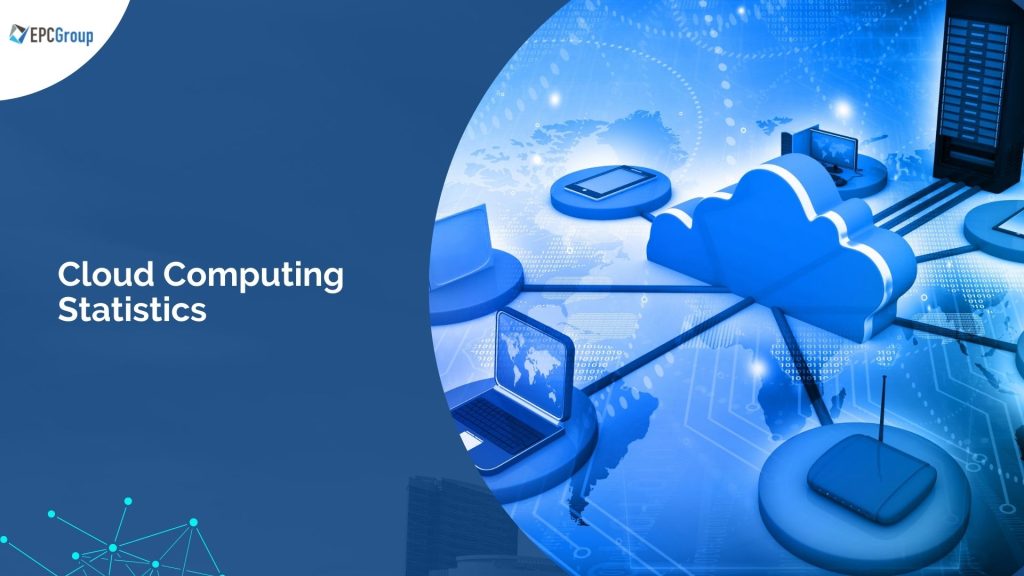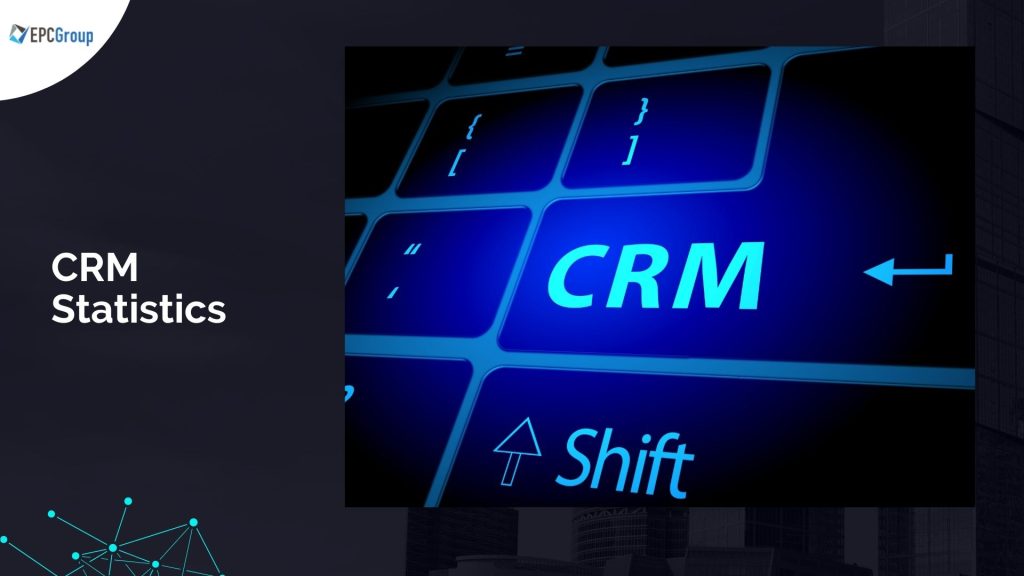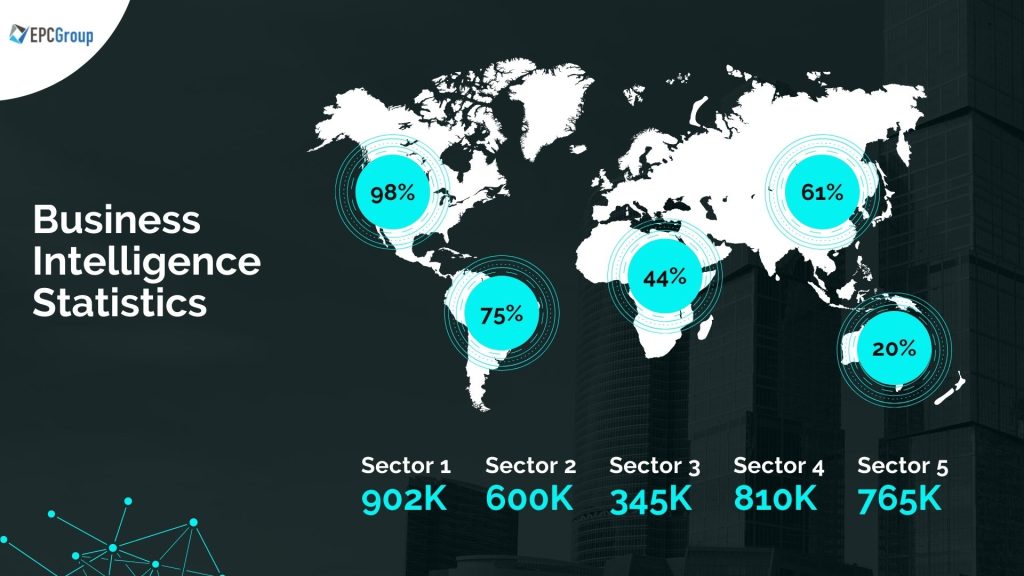Since the coronavirus pandemic, the working model of businesses has transformed, and the role of ERP in digital transformation is more important than ever. No matter which industry you belong to, ERP has a vital role to play. let’s see in this blog post all major ERP Statistics.
ERP statistics and trends for 2022 you need to keep in mind.
Most talked about ERP Statistics
Operational efficiency as the major benefit of ERP implementation
Source: HubSpot
Ninety-seven percent benefits of a business’s operations are thanks to their new system. It was followed by eighty-six percent, telling better visibility and reporting, and sixty-eighty percent citing improved competitiveness and growth.
Market leaders are seeking upgraded technologies
Source: Learn Hub
Forty-three percent of market leaders are seeking new and upgraded technologies in their ERP systems. They want systems to be simpler to upgrade but quicker to operate.
There will be more iERP in 2022 and beyond
Source: Infosys Consulting
Advanced automation and intelligence are no longer option add-ons but built-in capabilities of the new ERP model. iERP will allow companies to innovate data processing, extend the automation of routine tasks, make new workflows and convert complicated, unstructured data.
ERP data is anticipated to fuel thirty percent of AI-generated predictive analysis
Source: Gartner
By 2023, ERP data is predicted to increase thirty percent of all AI-generated predictive analyses and forecasts within the enterprise.
AI will be mainly incorporated into ERP systems
Source: Gartner
According to a report from Gartner, sixty-five percent of CIOs predict that AI will be incorporated into ERP systems. Further, the listed deep learning and predictive analytics of CIO are the most important ERP technologies to get a more competitive edge.
ERP implementation failure statistics
To perform an efficient ERP implementation, organizations should have a clear vision of new system requirements to make alignment throughout the company. Picking the wrong vendor and assigning an internal implementation staff boosts the chance of project success.
ERP as the main priority for finance companies
Source: Gartner
ERP is now considered the leading top tech investment priority among many finance firms. Sixty-four percent of companies and organizations are planning on implementing it within the next three years.
Businesses are planning to replace their older systems
Source: Panorama Consulting
Organizations are planning on changing older systems, with thirty-two percent of respondents saying their recent technology initiatives involve changing legacy solutions.

Satisfaction among organizations where ERP has been implemented has been positive
Source: Panorama Consulting
A notable minority of ten percent are either being dissatisfied or very dissatisfied with their new systems. That dissatisfaction is more typical among firms that have failed to implement efficient change management.
More companies put little or no focus on change management
Source: HubSpot
Twenty-seven percent of companies put very little or no focus on their change management. That’s consistent with the number of organizations expressing their disappointment in their implementations.
Organizational change is difficult
Source: HubSpot
Of companies that sought out change management services from a managed service provider, only thirty-three percent got aspects of organizational management challenging.
Three reasons why companies don’t pick a cloud ERP
Source: HubSpot
The three main reasons why minority companies choose a cloud ERP are the risk of data loss, risk of a security breach, and lack of information about the offerings.
Employee resistance as the major barrier to change
Source: Deloitte
Change (82%) underlying the necessity for efficient change management. Other barriers include unrealistic expectations (65%) and insufficient backing (72%).
Technical aspects of ERP implementation as the simplest to resolve
Source: Panorama Consulting
Eight percent of businesses find the technical change of adopting challenging. On the contrary, process changes and organizational change were major concerns that had to be resolved during projects.
More businesses fail to meet their goals.
Source: Deloitte
It was found that an estimated fifty-five to seventy-five percent of ERP projects fail to meet their goals and objectives.
Only five percent of the organization didn’t notice organizational improvements
Source: HubSpot
Five percent of businesses cite that ERP didn’t strengthen their processes, along with forty-nine percent citing they enhanced all business processes and forty-six percent citing they enhanced their key processes.
ERP Statistics as per industry (Healthcare, Technology, Construction, and Retail)
ERM adoption by industry differs, and companies utilize ERP systems for various reasons. Recent ERP usage statistics offer some useful insight into present usage trends.
Distributors will use more ERP systems in the future
Source: Software Path
Employees at distributions firms are most likely to actively utilize an ERP system (forty-five percent of employees), followed by eCommerce professionals (forty-four percent) and professional services (forty-three percent).
Accounting is the most important feature of an ERP system
Source: Software Path
Did you know that accounting was the most widely sought feature of an ERP system? In fact, fifty-seven percent of businesses need it within their system.
Digital business transformation is the most common among SAP consumers
Source: Panorama Consulting
Fifty-eight percent of these projects are about business transformation, followed by Oracle (forty-eight percent) and Microsoft Dynamics (forty-four percent).
One percent of businesses don’t have a cloud infrastructure
Source: Accenture
Just one percent of businesses acknowledge having no form of any cloud infrastructure at all. Meanwhile, forty-eight percent claimed to have implemented their digitization projects.
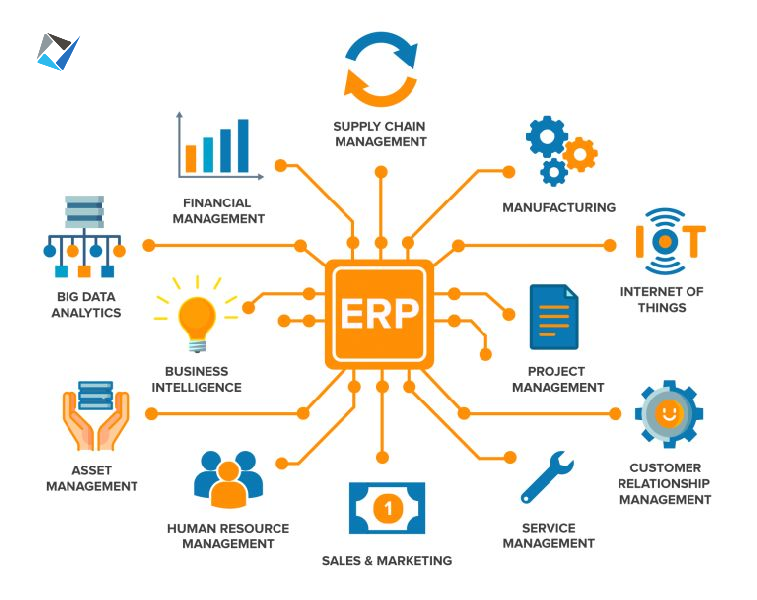
Manufacturing as the leading user of ERP software
Source: Select Hub
Manufacturers represented the biggest portion and the top user of ERP software. In fact, forty-seven percent of companies are seeking to buy ERP software. Following them are distributors (185), services (12%) and construction (4), and other industries.
ERP systems are a crucial investment for IT decision-makers
Source: Computers Weekly
ERP systems were considered to be a crucial investment and must be the number one priority, based on fifty-three percent of IT decision-makers in a recent survey.
IT developers that ERP processes can be replaced by machine learning or AI
Source: Evans Data
A whopping eighty percent of IT developers believe that ERP processes can be replaced by machine earning and AI. That will lessen staff costs and streamline processes, allowing companies to deliver a strong practices policy.
Users had an anticipated or actual spend on ERP of less than two percent of annual income
Source: Panorama Consulting
Eighty-four percent of respondents on a survey found that they had an expected or actual spend on ERP of less than 2% of annual income. Nonetheless, it’s vital to note that such numbers are influenced and differ by the size of an organization.
Better functionality is the main reason for implementing an ERP
Source: Select Hub
Forty percent of companies determined having better functionality as their main reason for implementing an ERP system.
Finance and accounting as the major influencers in purchasing ERP software
Source: Select Hub
Forty percent of influencers in purchasing ERP software were accounting and finance with twenty-three percent then followed by IT department employees with twenty-three percent as well.
ERP growth in 2021 and forecast for growth in 2022
A core system for organizations, ERP tools is driven by market characteristics like thriving global trade, widespread digital adoption, and massive amounts of data that should be tracked, analyzed, and maintained. ERP market growth and forecast show the move toward global demand and increased usage.
ERP will be worth $47.9 billion in 2023
Source: 360 Market Updates
The global market for ERP was valued at $33.6 billion in 2017 and is anticipated to be worth t$47.9 billion by 2023.
Microsoft Dynamics with a huge market share advantage
Source: Trust Radius
When it comes to market share, Microsoft Dynamics 365 has a huge edge over its competitors with forty-nine percent. It’s followed by Oracle (eighteen percent), Sage Intacct (seventeen percent), Infor (six percent), and Epicor (six percent).
ERP software market grew by nine percent in 2019
Source: Gartner
In 2019, the worldwide ERP software market increased by nine percent, leading to a global value of at least $39 billion in overall software revenue.
Cloud app expenditure could reach $226.9 billion by 2022
Source: Learn Hub
It’s estimated that global app expenditure could reach $226.9 billion by 2022, which makes it a major portion of the market size. Investing in a cloud-based SERP must be on every company’s shortlist to consider.
Cloud subscriptions in 2020 accounted for $170 billion in revenue
Source: Forrester Research
According to research conducted by Forrester Research, it was estimated that the 2020 cloud subscriptions for business applications accounted for $170 billion in revenue. Can you believe that?

Worldwide ERP software market is poised to reach $95.37 billion
Source: Apps Run the World
In 2021, the worldwide market of ERP software was expected to meet $95.37 billion and up from $94.71 billion last 2020. That signifies a 0.7 percent YoY growth rate.
ERP software values are anticipated to reach $96.04 billion for 2022
Source: Apps Run the World
For 2022, 2023, and 2024, the worldwide ERP software market values are estimated to reach $96.04 billion, $96.71 billion, and $97.15 billion, respectively. Further, CAGR over the given period is 0.7 percent.
The global ERP software will rebound at a CAGR of eight percent
Source: Reportlinker
Reportlinker anticipates that the worldwide ERP software market to rebound at a CAGR of eight percent from 2021 and will reach $181.5 billion in 2023.
ERP market size will grow more post covid-19
Source: Allied Market Research
It’s estimated to reach $86,303 million by 207, at a CAGR of 9.8%. The current estimation of 2027 is estimated to be higher than pre-covid-19 estimates.
Higher maintenance costs and investment will impact the market growth
Source: Allied Market Research
Including the availability of open source applications is anticipated to influence the market growth during the ERP market forecast period.
ERP Statistics around profit gained by organizations
Companies utilize ERP to cut costs and become more efficient. Statistics on ERP on return on investments and profit gained highlight the advantages of the technology.
Firms with $100-$250 million revenue had the fastest implementation period
Source: Ultra Consultants
In a survey on ERP implementation, midsize organizations with $100 million to $250 million in profit had the fastest implementations at 6.7 months. Firms with more than $25 billion in revenue took at least 12.35 months.
3-5% of annual revenue is the cost of owning an ERP system
Source: HubSpot
For midsize organizations with a profit of under $1 billion, the cost of owning an ERP system is at least three to five percent of annual revenue.
2-3% of annual revenue is the cost of owning the system for big companies
Source: HubSpot
For big organizations with a revenue of more than $1 billion, the cost of owning an ERP system is two to three percent of their annual revenue.
More powerful analytics
Source: Finance Online
Organizations use analytics twice to rank highly in terms of financial performance, five times to make time-sensitive decisions quick.
Companies considered ERP implementation useful and led to their success
Source: Panorama Consulting
Companies that communicate with their team before implementation consider their project a success. Only eighty-six percent of companies that started communicating during or after implementation consider their project a success.

Small businesses are using ERP more
Source: Aberdeen Group
A survey from Aberdeen Group found that sixty-five percent of small businesses are presently taking advantage of ERP consultation services.
More small businesses saved money by using ERP software.
Source: Aberdeen Group
Small businesses that negotiated along with ERP service providers were able to save at least twenty-one percent of their expenses.
More companies will invest in cognitive technologies
Source: Deloitte
Sixty-three percent of companies are now planning to integrate other ERP solutions such as competitive technologies to enhance their competitiveness.
Top three areas where ERP produced a return on investment
Source: Ultra Consultants
The top three business goals mentioned for the implementation of ERP systems are reduced cycle time (35%), reduced inventory levels (40%), and reduced IT costs (40%).
Benefits of businesses obtained from an ERP system
Source: Technology Evaluation Center
The top three advantages businesses cited they obtained from an ERP system are centralized data system, improved collaboration, and lowered process time.
Sources –
HubSpot Learn Hub Infosys Consulting Gartner Gartner Panorama Consulting Gartner Panorama Consulting HubSpot Deloitte Panorama Consulting Deloitte HubSpot Software Path Software Path Panorama Consulting Accenture Select Hub Computers Weekly Evans Data Panorama Consulting Select Hub 360 Market Updates Trust Radius Gartner Learn Hub Forrester Research Apps Run the World Apps Run the World Reportlinker Allied Market Research Ultra Consultants HubSpot HubSpot Finance Online Panorama Consulting Aberdeen Group Deloitte Ultra Consultants Technology Evaluation Center


